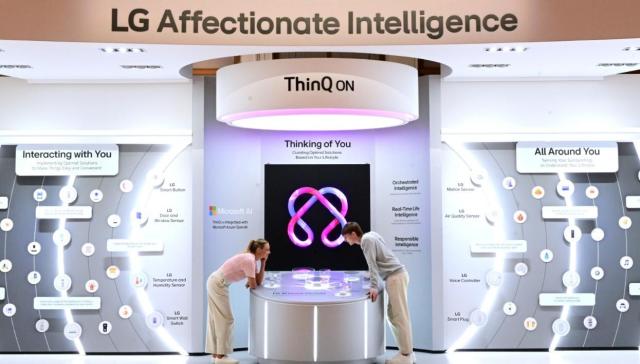
The exhibition, celebrating its 100th anniversary, opened Friday for a five-day run. Over 2,000 companies are participating in the event, which highlights AI and connectivity as the driving forces behind the next generation of home appliances.
Under the theme “AI for All,” Samsung is displaying its latest AI products in video displays, home appliances and mobile devices, centered around its SmartThings platform.
Samsung’s AI appliances are compatible with the SmartThings app, allowing users to connect and control a wide array of devices, from televisions and refrigerators to mobile phones and home security systems. The platform has grown to over 350 million registered users as of August 2024.
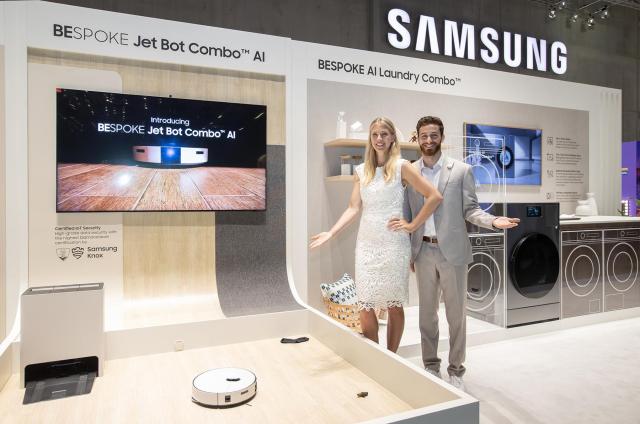
“We will continue to advance our products and services through the close connection of home appliances and software to provide a more convenient and enjoyable dietary life,” said Lee Moo-hyung, vice president of Samsung Electronics’ digital appliance division.
Another key feature is its Bespoke AI Family Hub refrigerator, which offers advanced food management capabilities and seamless integration with other smart home devices.
The company is also introducing its Samsung Food+ service, an AI-driven platform that provides personalized meal planning and recipe recommendations based on available ingredients.
A cornerstone of Samsung's exhibit is the enhanced Bixby voice assistant. The upgraded AI now boasts improved natural language processing capabilities, allowing it to understand context and perform multiple commands simultaneously.
The company is also demonstrating AI-enhanced security solutions Knox Matrix, designed to ensure safe device connections and protect user information.
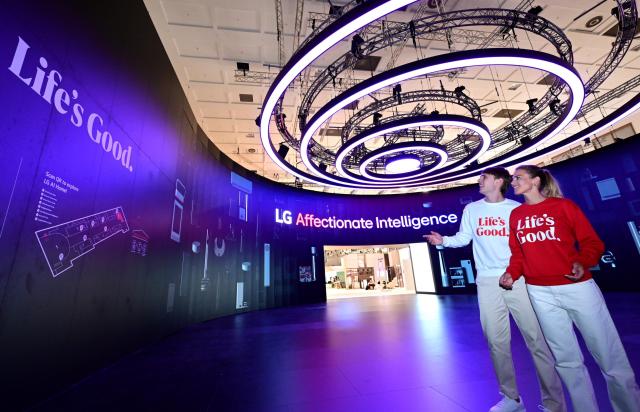
Under the theme “Experience, Affectionate Intelligence Home,” LG Electronics is debuting "LG ThinQ ON," an AI home hub that connects home appliances and IoT devices, featuring the industry’s first generative AI in a hub device.
“We will lead the AI home era that upgrades customers' daily lives with the LG AI home solution, which understands and empathizes with customers through generative AI,” said Ryu Jae-cheol, president of LG Electronics’ H&A business division.
LG showcase its AI Core Tech, which combines LG’s hardware expertise in motors and compressors with AI technology to optimize product performance and energy efficiency.
LG has recently acquired an 80 percent stake in Athom, a Dutch smart home platform company, to integrate Athom’s open smart home ecosystem with LG’s AI-powered appliances and generative AI.
This aligns with LG’s strategy to transition from a hardware-focused company to a software-based platform provider, aiming to develop an “Intelligent Space” solution that extends beyond homes to commercial spaces and mobility.
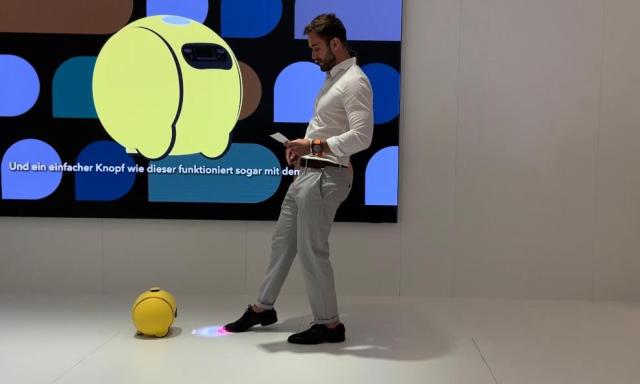
Both companies are placing a strong emphasis on energy efficiency, aiming to appeal to environmentally conscious European consumers.
Samsung is showcasing its SmartThings Energy service, developed in collaboration with Tesla. This system manages solar power generation and electric vehicle charging, allowing users to optimize energy consumption and reduce their carbon footprint.
Samsung is also introducing Flex Connect, which helps save energy consumption during peak hours.
LG, for its part, is presenting a new heat pump system that uses AI to analyze energy consumption patterns and optimize heating and cooling modes.
LG’s new drum washing machine boasts an energy efficiency 55 percent higher than the current A-grade standard of Europe’s ErP (energy-related products) energy ratings.
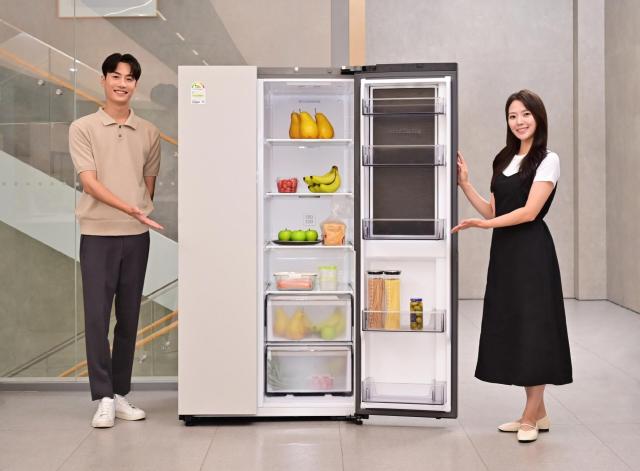
Both companies are also venturing into the realm of AI-powered robotics.
Samsung is offering hands-on experiences with its AI assistant robot, Ballie, first unveiled at CES 2024. This small, rolling robot is designed to act as a personal assistant, controlling smart home devices and even serving as a mobile security camera.
LG is showcasing a wheeled, autonomous AI home hub, codenamed Q9, which can move around the home, adjust lighting and temperature, and even read stories to children.
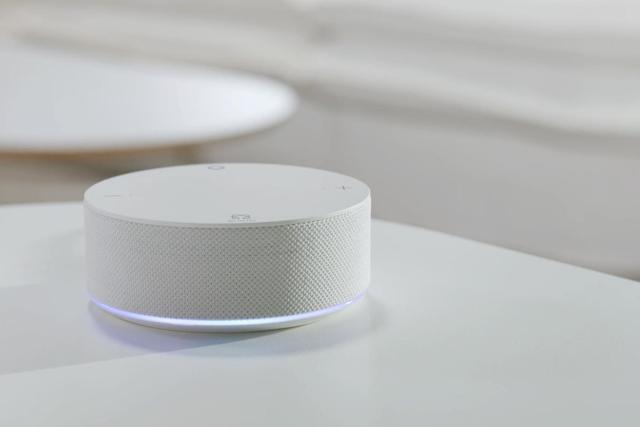
Copyright ⓒ Aju Press All rights reserved.

